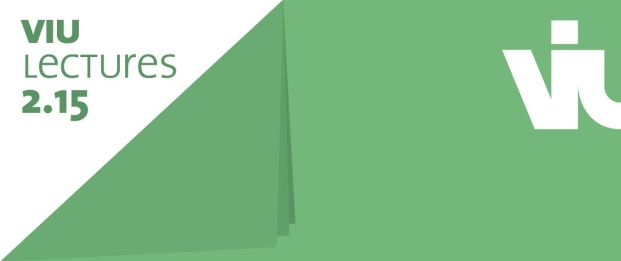VIULECTURES 2|15 |
|
Thursday, 17 December 2015
Prof. Gianighian will open the Closing Ceremony of the Fall term 2015 with a discussion about what happened (and is happening) to the world heritage in the last half century, through man’s and nature’s work.
Giorgio Gianighian is Former Chair of Architectural Restoration at Iuav, Vice-Director of the Shanghai Jiao Tong University International Research Center for Architectural Heritage Conservation. He is Visiting Professor at the Schools of Architecture of the Universities of Tokyo, Jerusalem, and East London where he was responsible for the M.Sc. in Architectural Conservation. Prof. Gianighian has conducted research in Armenia, Japan and Nepal and is World Heritage City nomination consultant in Nepal, Republic of Armenia, Bosnia-Herzegovina and Moldova, for Unesco, and expert consultant for the restoration of Ekmekcizade Caravanserai (Edirne, Turkey) for the European Commission. His professional work in Venice includes: the restoration of St. Mark’s clock-tower; the restoration and reconditioning of the water cistern of the Fondaco dei Turchi. _________________________________________________________
Wednesday, 9 December 2015
This open lecture forms a part of Prof. Ostanel’s course at VIU on City and Immigration and is organized in collaboration with Collegio Internazionale Ca’ Foscari.
Suggested Reading:
David Hulchanski is a Professor of housing and community development at the University of Toronto’s Factor-Inwentash Faculty of Social Work, where he holds an endowed Chair in Housing. His research and teaching is focused on neighbourhoods, community development, housing need, immigrant settlement and social and economic rights. _________________________________________________________
Columbus never realized he was in a New World, but the Caribbean presented him with strikingly new cultures where one of his Arawak informants confirmed to him that the Caribs [or “Canibs”] were anthropophages – eaters of human flesh. Over the next few centuries cannibalism would become one of the defining traits or representations of the “barbarism” of many of the peoples of the New World and, therefore, of the presumed superiority of European cultures as they took possession of the recently discovered continents. Yet the great French humanist Michel de Montaigne famously questioned this claim to cultural superiority in his Essays (1580).
John Jeffries Martin is chair of the department of history at Duke University, and the author of studies on the Renaissance period (Venice’s Hidden Enemies: Italian Heretics in a Renaissance City,1993; Myths of Renaissance Individualism, 2004). This year, he is a visiting scholar at Venice International University, where he hopes to complete a new book Crossing the Boundaries of Hercules: How The Modern World Was Made; Europe, 1492-1815, a work that explores real and imagined “crossings” in the reshaping of European culture in these centuries. Martin also has a keen interest in the history of torture, a topic he is pursuing through a study of Francesco Casoni, a provincial intellectual, whose writings on evidence and the art of conjecture did much to undermine the need for the use of torture in the courts of Europe in the early modern period. Currently Martin serves on the board of editors of the American Historical Review and is, with Richard Newhauser, editor of the series Vices & Virtues for Yale University Press. |
 |
 |
 |

